
Allegheny County Medical Society


Allegheny County Medical Society
Allegheny County Medical Society
Editorial
• Full Circle
Deval (Reshma) Paranjpe, MD, MBA, FACS
Editorial
• Fire and Ice
A Warm, Well-Lighted Place
Anthony Kovatch, MD
Medical News
• Self-Care in Healthcare 2025 From Awareness to Action
Sara Hussey, MBA, CAE
Membership
• Q&A with Lawrence John, MD
ACMS News
• Notice of Proposed Bylaws Change
Society News
• Organized Medicine in the Crosswinds
ACMS Advocacy Task Force
Inaugural Report
Rick Hoffmaster, MD

ACMS News
• Meet The 2025 ACMS Distinguished Awardees
ACMS News
• Specialty Group Updates
ACMS Staff: Nadine
Popovich, Melanie Mayer and Haley Thon
Article
• Changing the Way We Tell Our Story
Reinventing the ACMS Bulletin
Keith Kanel, MD
Article
• Expanding Access to Palliative Care
What Pennsylvania's Serious Illness Scorecard Reveals Lisa George, MPH, CHES
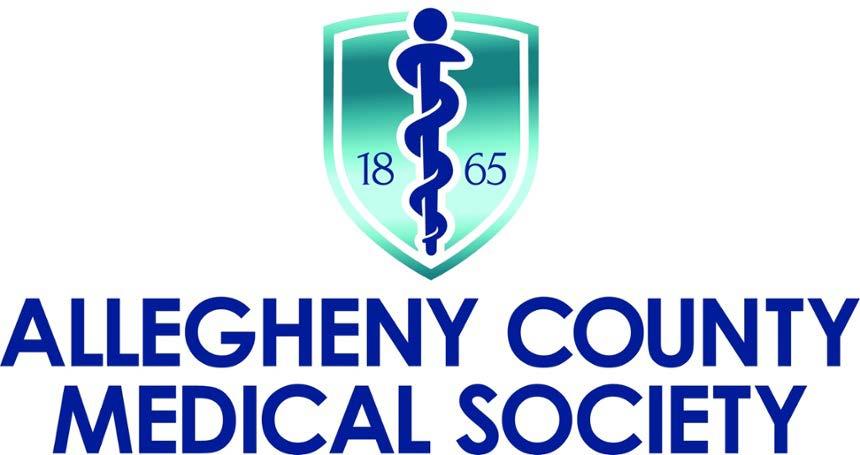
2025
Executive Committee and Board of Directors
President
Keith T. Kanel, MD
President-elect
Kirsten D. Lin, MD
Secretary
Richard B. Hoffmaster, MD
Treasurer
William F. Coppula, MD
Board Chair
Raymond E. Pontzer, MD
Board of Directors
Term Expires 2025
Anuradha Anand, MD
Amber Elway, DO
Mark A. Goodman, MD
Elizabeth Ungerman, MD, MS
Alexander Yu, MD
Term Expires 2026
Michael M. Aziz, MD, MPH, FACOG
Michael W. Best, MD
Micah A. Jacobs, MD, FIDSA
Kevin G. Kotar, DO
Jody Leonardo, MD
Term Expires 2027:
David J. Deitrick, DO
Sharon L. Goldstein, MD
Prerna Mewawalla, MD
Raymond J. Pan, MD
Nicole F. Velez, MD
James Latronica, DO, DFASAM
Richard B. Hoffmaster, MD
Finance
William F. Coppula, MD
Nominating
Kirsten D. Lin, MD
Women’s Committee
Prerna Mewawalla, MD & Meilin Young, MD
Managing Editor
Sara C. Hussey, MBA, CAE
ACMS Executive Director shussey@acms.org
Medical Editor
Deval (Reshma) Paranjpe, MD reshma_paranjpe@hotmail.com
Bulletin Designer
Victoria Gricks victoria@thecorcorancollective.com
2025 Bulletin Editorial Board
Richard Daffner, MD, FACR
Robert Howland, MD
Anthony Kovatch, MD
Charles E. Mount, MD, FAAD
Alexandra Johnston, DO
John P. Williams, MD
Executive Director
Sara Hussey shussey@acms.org
Vice President - Member and Association Services
Nadine M. Popovich npopovich@acms.org
Manager - Member and Association Services
Haley Thon hthon@acms.org
Operations CoordinatorACMS & ACMS Foundation
Melanie Mayer mmayer@acms.org
Manager - Operations and Finance
Elizabeth Yurkovich eyurkovich@acms.org
Bulletin Designer Victoria Gricks victoria@thecorcorancollective.com
EDITORIAL/ADVERTISING
OFFICES: Bulletin of the Allegheny County Medical Society, 850 Ridge Avenue, Pittsburgh, PA 15212; (412) 321-5030; fax (412) 321-5323.
USPS #072920. PUBLISHER: Allegheny County Medical Society at above address.
The Bulletin of the Allegheny County Medical Society is presented as a report in accordance with ACMS Bylaws.
The Bulletin of the Allegheny County Medical Society welcomes contributions from readers, physicians, medical students, members of allied professions, spouses, etc. Items may be letters, informal clinical reports, editorials, or articles. Contributions are received with the understanding that they are not under simultaneous consideration by another publication.
Issued the third Saturday of each month. Deadline for submission of copy is the SECOND Monday preceding publication date. Periodical postage paid at Pittsburgh, PA.
Bulletin of the Allegheny County Medical Society reserves the right to edit all reader contributions for brevity, clarity and length as well as to reject any subject material submitted.
The opinions expressed in the Editorials and other opinion pieces are those of the writer and do not necessarily reflect the official policy of the Allegheny County Medical Society, the institution with which the author is affiliated, or the opinion of the Editorial Board. Advertisements do not imply sponsorship by or endorsement of the ACMS, except where noted.
Publisher reserves the right to exclude any advertisement which in its opinion does not conform to the standards of the publication. The acceptance of advertising in this publication in no way constitutes approval or endorsement of products or services by the Allegheny County Medical Society of any company or its products.
Annual subscriptions: $60
Advertising rates and information available by calling (412) 321-5030 or online at www.acms.org.
COPYRIGHT 2025: ALLEGHENY COUNTY MEDICAL SOCIETY POSTMASTER—Send address changes to: Bulletin of the Allegheny County Medical Society, 850 Ridge Avenue, Pittsburgh, PA 15212. ISSN: 0098-3772

By: Deval (Reshma)
MD, MBA, FACS
My first memories in this life include reading the ACMS Bulletin. When I was three years old, the monthly ACMS Bulletin was a fixture on our living room coffee table along with the JAMA, Pediatrics, the Ob-Gyn Green Journal, and the New England Journal of Medicine. The latter three journals were dry and had no pictures—at least none that I could make sense of at that age, not having studied histopathology--so they were not my favorite reading material. The JAMA had beautiful artwork, but the art was too serious and often sad.
But the Bulletin? Oh, the Bulletin was always beautiful. Every month, a gorgeous photograph of the natural world graced its front cover. I was so excited just to look at all the beautiful pictures—waterfalls, jungles, exotic birds, hot air balloons; every month was an enchanting adventure to be anxiously awaited. My parents, both physicians, pointed out that all of these pictures were taken by ACMS members as part of a photo contest. So perhaps if I was good, studied hard and did well in school, went to medical school, returned to Pittsburgh to practice, and joined the ACMS—I could enter a picture in this contest! I’m not saying that’s why I decided on a career in medicine, but the prospect of landing a Bulletin cover was certainly a great inducement at the tender age of three.
(The back cover of the Bulletin was always graced by Malachy Whalen, who sold insurance to so many Pittsburgh physicians including my parents. Imagine my surprise and delight when the distinguished gentleman on the back cover of the Bulletin showed up
in our living room! I felt like Alice in Wonderland.)
As a high school student, I finally started reading the Bulletin for the articles. As a college student home on break, I started reading articles with a scientific bent. As a medical student home on break, I started reading about what life would be like as a physician. As a sleep deprived UPMC resident, I once again blissfully enjoyed the glorious cover photos and thought about contacting Malachy Whalen to ask about insurance.
When I moved back to Pittsburgh after fellowship and started practice, I immediately joined the ACMS out of a sense of tradition and pride. I wanted to contribute in any way I could to the well being of the patients in our community and the well being of our fellow physicians. When the opportunity arose first to serve on the Bulletin’s Editorial Board and then to serve as Medical Editor, I was thrilled and humbled. This historic magazine has served as the most visible and tangible reminder of the good work of the ACMS since 1911. My goal in preserving and promoting the Bulletin has been to lighten your burdens after a heavy workday with levity, beauty, perspective, and useful information to help you in your life both within and without medicine. The Editorial Board has boasted a wealth of great writers over the years (like the legendary Dr. Richard Daffner to name but one) with varied perspectives, lively discussion and some controversies. We have offered legal, financial, pharmacy, and arts columns. The pictures preserve so many great memories as a photo diary of the ACMS and associated
societies.
I hope that the dedicated Editorial Board and I have succeeded in bringing you joy, respite and interesting ideas to consider while you unwind and relax. Thank you for letting us into your living room all these years-I hope that the Bulletin has kept the ACMS at the top of your mind and goodwill over the years when you’ve seen it on your coffee table.
This is a bittersweet column to write. The ACMS Bulletin has been my joy and raison d’etre for the past 20 years, especially this last decade plus as Medical Editor. This summer, the ACMS Executive Committee made the decision to change the monthly print Bulletin to a quarterly magazine in order to change with the times and focus resources with a greater emphasis on the Bulletin’s online presence. This will allow the Bulletin to have an even larger audience and will promote the ACMS and its mission far and wide. I am honored to have been asked to be Editor Emeritus as of 2026.
Our ACMS Bulletin has been going strong for over a century, and I know that with care and loving stewardship it will endure for another century to come. The time has come to hand over that stewardship to a new set of voices—a new Editor and a revamped Editorial Board--I am relying on all of you to step up and be those voices to carry the Society into a new era.
And please—tell your little ones to grow up to write for the Bulletin in the years to come.
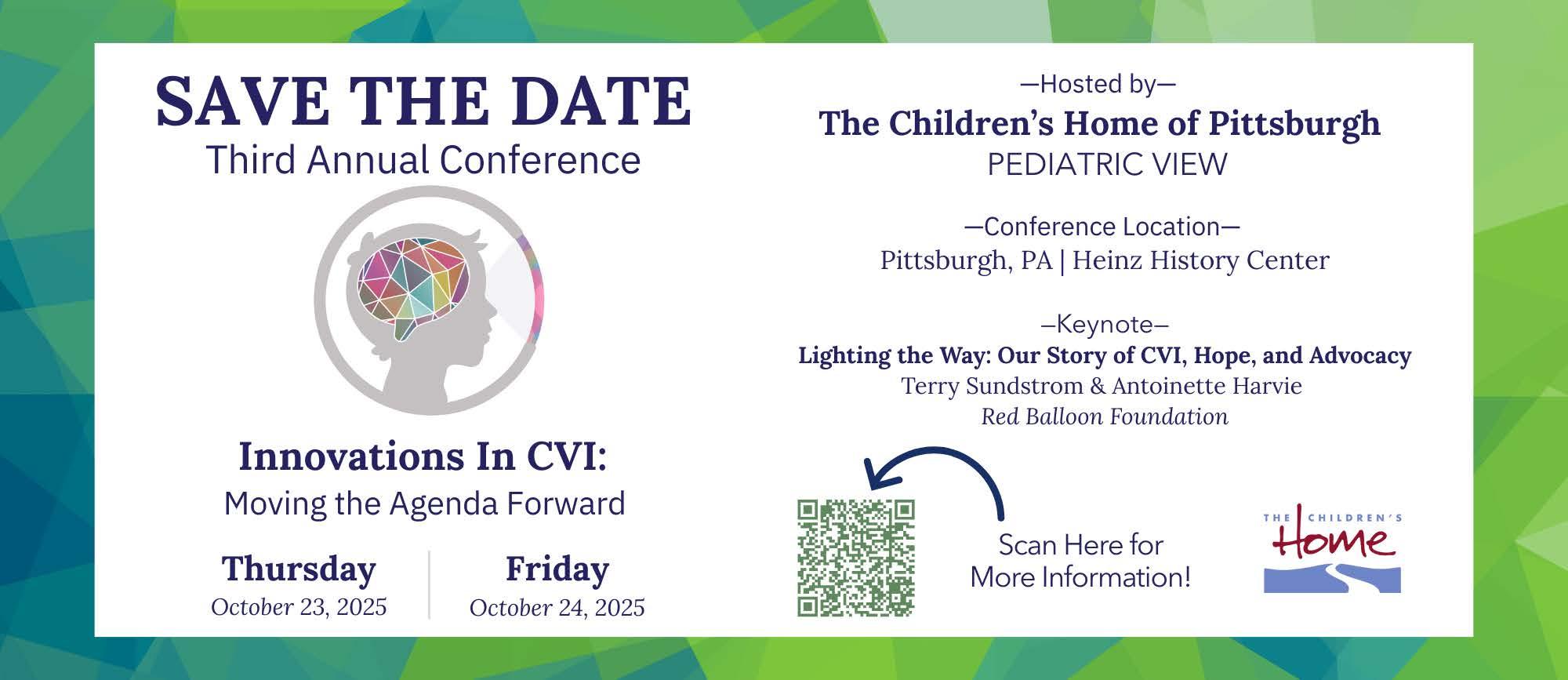

The Allegheny County Medical Society conducted its election from September 2, 2025September 9, 2025. The following are the official results of the election:
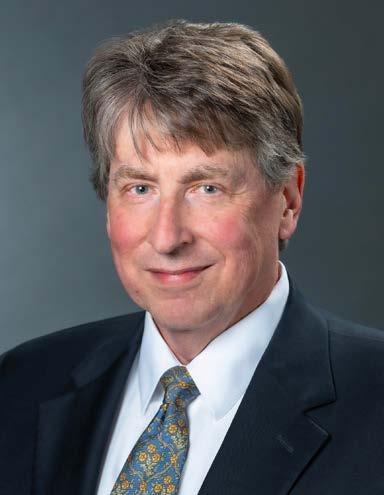
Chair / Immediate
Past President
Keith Kanel, MD
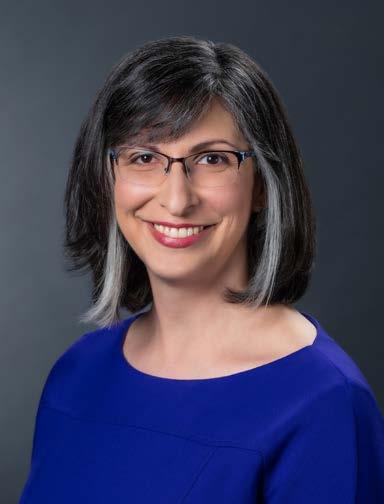

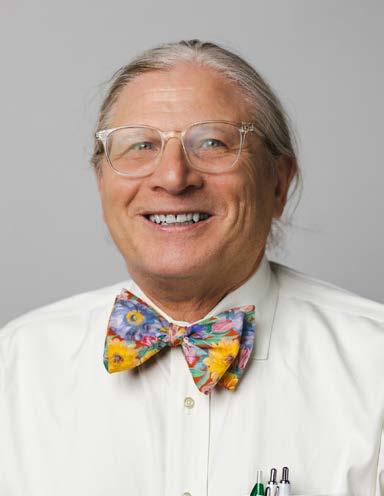

Kirsten D. Lin, MD
Richard B. Hoffmaster, MD
F. Coppula, MD
Three-Year Term (Term Expires in 2028)
Andrew Eller, MD
Amber Elway, DO
Geoffrey Lim, MD
Charles E. Mount III, MD
Meilin Young, MD
Term Expires in 2026
Michael Aziz, MD
Michael Best, MD
Kevin Kotar, DO
Jody Leonardo, MD
Micah Jacobs, MD
Yu, MD
Term Expires in 2027
David Deitrick, DO
Sharon Goldstein, MD
Prerna Mewawalla, MD
Raymond Pan, MD
Nicole Velez, MD
Raymond E. Pontzer, MD (Chair)
Matthew B. Straka, MD
Peter G. Ellis, MD
*A member of the Peer Review Board cannot be an active member of the ACMS Board of Directors.
Elected – Two-Year Term 2026-2027
Holly Appleberry, DO
Rina Chabra, DO
Alexandra Johnston, DO
Kevin Kotar, DO
Stacie McKnight, DO
Devon Ramaeker, MD
Dillon Stein, DO
Currently Serving (Not Up for Election)
Michael Aziz, MD
Vint Blackburn, MD
Douglas Clough, MD
Molly Ainsman Fisher, MD
Geoffrey Lim, MD
Charles Mount, MD
Alexander Yu, MD
*Listed in Order of Votes Received*
Richard Hoffmaster, MD
Anthony Kovatch, MD
Amber Elway, DO
Darlene Gabeau, MD
Elected – One Year Term 2026
The ACMS Nominating Committee and 2025 Board of Directors congratulate all the newly elected officers, board members, and delegates. We look forward to your active participation as we continue our mission for the Society. Thank you for your dedication to our profession.
— Kirsten D, Lin, MD, Chair, Nominating Committee
Kirsten D. Lin, MD Nominating Committee Chair
Keith T. Kanel, MD
Kevin Kotar, DO
Jody Leonardo, MD
Raymond Pan, MD
Alexander Yu, MD

By: Sara Hussey, MBA, CAE – Executive Director of ACMS
This September, the Allegheny County Medical Society (ACMS) marked Physician Suicide Awareness Day not just with reflection, but with action. Through the Self-Care in Healthcare 2025 initiative and the launch of the Physician Wellness Program Toolkit, ACMS is building a lasting, year-round commitment to physician well-being. Only 13–36% of physicians experiencing mental health concerns seek help - even though treatment can cut suicide risk in half. Female physicians face a 53% higher suicide risk compared to women in the general population. Barriers like stigma, time pressures, and fear of professional repercussions keep too many physicians from accessing support. ACMS is working to change that.
What ACMS Is Doing
Physician Wellness Program (PWP): Launched in April 2024, the PWP offers free, confidential access to vetted therapists and life coaches, fully outside of insurance or employer systems.
Physician Wellness Program Toolkit: Released this September, the Toolkit equips hospitals, practices, and residency programs with flyers, slides, and ready-to-use messaging to put resources directly in front of physicians.
Partnerships and Visibility: ACMS is expanding institutional partnerships, providing recognition for supporters, and embedding wellness across programs throughout the year.
As part of this campaign, ACMS is proud to spotlight Dr. Larry John as the winner of this year’s ACMS Spirit of Service award winner. This
award recognizes his outstanding commitment to supporting physicians and advancing wellness in our community. This year, ACMS is pairing the award with a fundraising effort to strengthen the Physician Wellness Program. Our goal is to raise $10,000 in honor of Dr. John’s lasting contributions to Physicians Wellness at both a state and local level.
The momentum from September
is just the beginning. ACMS’s vision is that every physician in Allegheny County knows confidential support is available—and that every healthcare setting has the tools to share it. Wellness is not a one-month campaign. It’s a collective responsibility. For more information or to request the toolkit at your practice or hospital system, contact Melanie Mayer at mmayer@acms.org.


Lawrence John, MD, has built a remarkable legacy in organized medicine. He recently sat down with Haley, our membership manager, to reflect on his journey into the field. In conversation, Dr. John emphasized the vital role of medical society membership and physician wellness initiatives. He highlighted how these programs foster community, provide valuable resources, and combat the burnout challenges facing today’s medical workforce.
In both 2017 and 2018, he was recognized as one of Pittsburgh Magazine’s “Pittsburgh’s Best Doctors,”
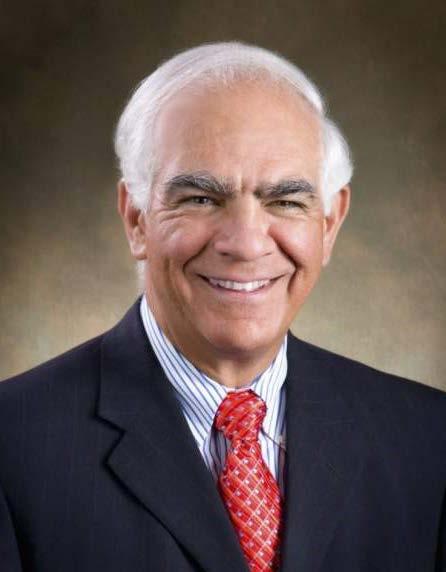
honoring his commitment to patient care and excellence in family medicine. It is a pleasure to also recognize Dr. John as this year’s recipient of the ACMS Spirit of Service Award.
This prestigious honor is not only a recognition of his exceptional dedication, commitment, and selflessness in volunteer efforts within our organization, but it also reflects a lifetime of service to the medical community. The Spirit of Service Award stands as a lifetime achievement recognition, celebrating physicians who embody the highest values of compassion, generosity, and leadership, and those who consistently go above and beyond to uplift their colleagues, patients, and profession. Dr. John’s remarkable contributions make him a truly deserving recipient of this distinguished award.
Q: CAN YOU SHARE A LITTLE ABOUT YOUR BACKGROUND AND WHAT LED YOU TO A CAREER IN MEDICINE?
A: I come from a family deeply rooted in medicine, which inspired my own path. My brother is an infectious disease physician, and our family doctor in Uniontown, Pennsylvania, was a strong role model growing up. That influence, combined with a desire to make a real impact on community health, drew me to family medicine.
I earned my bachelor’s degree from the University of Notre Dame in Indiana
and went on to earn my medical degree from Case Western Reserve University in Cleveland, Ohio. Over the years, I’ve had the privilege of serving as a family physician, school physician, and sports doctor, and I eventually settled in Pittsburgh after meeting my wife, who is a pediatrician.
Q: HOW DID YOU FIRST GET INVOLVED WITH ALLEGHENY COUNTY MEDICAL SOCIETY OR WHAT HAS BEEN YOUR OVERALL ENGAGEMENT WITH ACMS?
A: My involvement with the Allegheny County Medical Society began during residency, thanks to the encouragement of my program director, Dr. Paul Dishardt at UPMC St. Margaret. This sparked what has become more than 40 years of active engagement with ACMS. Over the years, I’ve had the privilege of serving in a variety of leadership roles, including board member, executive committee member, board president, and chair. I also had the honor of serving as the 170th president of the Pennsylvania Medical Society (PAMED).
Being part of ACMS has provided me with a strong professional community and the opportunity to advocate for physicians and patients alike. It’s been a cornerstone of my career, offering both support and a platform to make meaningful contributions to organized medicine.
Q: WHAT HAS BEEN THE MOST REWARDING ASPECT OF BEING AN ACMS MEMBER?
A: The most rewarding part of being an ACMS member has been the deep sense of connection and purpose it provides. ACMS has given me a supportive network of colleagues and a strong collective voice to advocate for our profession. I’ve found tremendous value in the camaraderie, opportunities for leadership and professional growth, and the chance to collaborate with physicians from so many specialties. Serving as a past president of the Pennsylvania Medical Society has also deepened my appreciation for the role ACMS plays in uniting and supporting physicians. What has been especially meaningful is ACMS’s commitment to physician wellness. After experiencing the devastating loss of three colleagues to suicide, I’ve seen firsthand how critical it is to have resources, open conversations, and support systems for physicians. Being part of an organization that prioritizes the wellbeing of its members has been one of the most impactful aspects of my involvement.
Q: HOW DID YOU FIRST GET INVOLVED WITH THE ALLEGHENY COUNTY MEDICAL SOCIETY OR WHAT HAS YOUR OVERALL ENGAGEMENT BEEN WITH THE ACMS?
A: I learned about ACMS through a colleague who highly recommended it. They highlighted the many benefits the society offers for both practicing physicians and those involved in medical education, so I thought it was worth exploring. Since becoming a member, I’ve been impressed by the opportunities for professional development and the resources available to support physicians in the community.
I think it’s important to continue growing so that when our students and colleagues look to us for guidance, we remain educated—as both leaders and clinicians. Being involved has been incredibly valuable for my professional
growth and for building connections with other members here in Pittsburgh.
Q: HOW CAN FELLOW ACMS MEMBERS CONNECT WITH YOU OR SUPPORT YOUR WORK AND WHAT IS ONE SENTIMENT YOU’D LIKE TO SHARE WITH YOUR FELLOW ACMS MEMBERS?
A: I encourage fellow ACMS members to connect by getting involved by attending events, joining committees, or simply reaching out to share ideas. Building relationships within our medical community is one of ACMS’s greatest strengths.
The Physician wellness Program at ACMS has raised awareness about burnout and promoted mental health support, but challenges remain. From electronic health records to patient expectations and 24/7 availability. Supporting my work means continuing to champion organized medicine and wellness initiatives. By staying engaged and supporting one another, we can help create a healthier, more resilient medical community.
I’m deeply inspired by the philanthropic work of the ACMS Foundation. Through its grantees, the foundation provides vital support to
our community and makes a lasting impact, yet the need for financial support continues to grow. I welcome fellow members to reach out to learn more or discuss ways to get involved, and I encourage everyone to consider supporting the foundation’s mission through donations.
Q: LASTLY TO WRAP UP, OUTSIDE OF MEDICINE, WHAT ARE YOUR HOBBIES OR OTHER INTERESTS?
A: Outside of medicine, I have a real passion for Frank Lloyd Wright. I’ve collected well over 500 books on his work, and our home was actually designed by one of his junior apprentices. Interests like this are so important for physicians. They help us recharge, maintain balance, and give us the perspective to really listen and connect with our patients. I’ve always treasured the long-term relationships I’ve built with patients, and these personal pursuits help me bring my best to that work.
I’m fortunate to have four wonderful children and eleven grandchildren, and I treasure visiting them across the United States. I also enjoy spending time golfing regularly with friends.
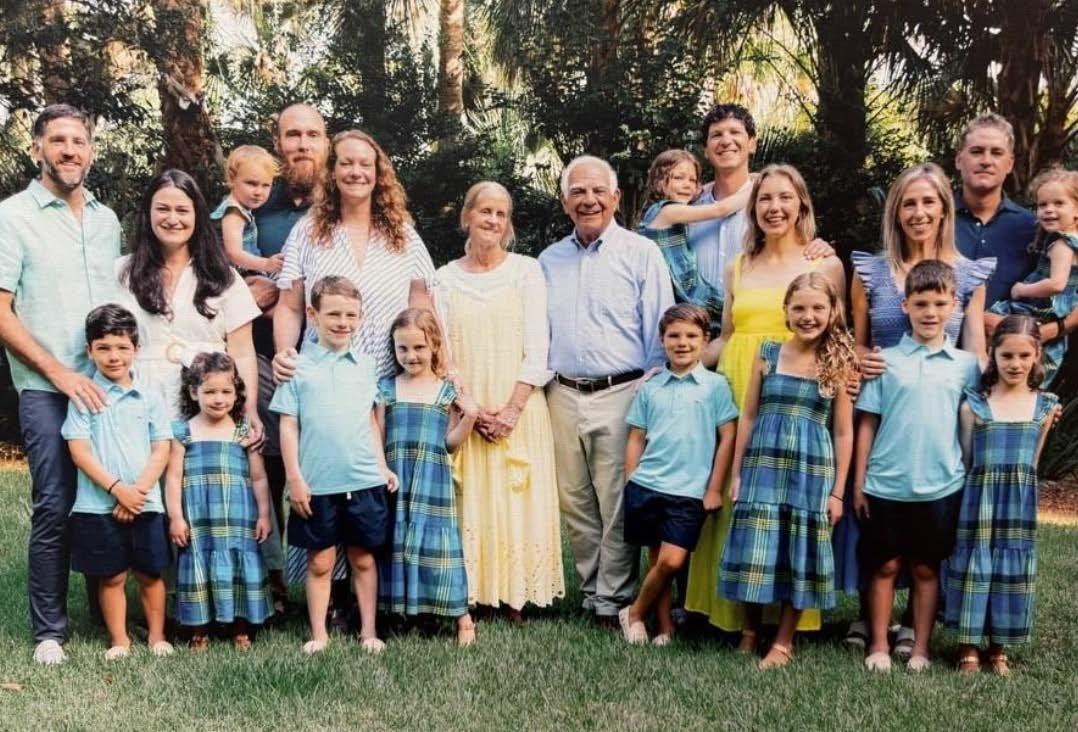
The Allegheny County Medical Society (ACMS) Board of Directors is proposing an amendment to the ACMS Bylaws that will affect the composition of the ACMS Bulletin Editorial Board.
Members are invited to submit comments regarding this proposed change to ACMS Executive Director Sara Hussey (shussey@acms.org) or to ACMS Bylaws Committee Chair and ACMS Secretary Richard B. Hoffmaster, MD (acms@acms.org) no later than October 15, 2025.
The Bylaws Committee will review all feedback received and incorporate any necessary revisions before presenting a final recommendation to the ACMS Board of Directors for approval.
Section 6. BULLETIN of the Allegheny County Medical Society
The Board shall provide for and supervise the publication of the BULLETIN of the Allegheny County Medical Society. The Board shall determine the editorial policy and supervise the contents of the publication.
The "BULLETIN” is defined as a quarterly publication or equivalent content platform, including accompanying digital formats, as approved by the Board of Directors.
A. Medical Editor
(1) The Board of Directors shall appoint the Medical Editor for a term of three (3) years, upon the recommendation of the Executive Committee. This appointment shall be subject to yearly confirmation at the January meeting of the Board of Directors. The Medical Editor may serve up to two (2) consecutive terms (maximum six years). After a oneterm break, the Medical Editor shall be eligible for reappointment.
(2) The Medical Editor shall recommend Associate Editors Editorial Board Members to the Board of Directors for appointment for a term of two three (3) years. There shall be a total of eight Associate Editors, four to be appointed each year by the Board of Directors. An Associate Editor may serve three consecutive terms. Members of the Editorial Board may serve up to two (2) consecutive terms (maximum six years). Appointments shall be staggered such that
approximately a third of the Editorial Board is reappointed or replaced annually to maintain continuity. After a one-term break, Editorial Board Members shall be eligible for reappointment.
The Medical Editor and the Associate Editors shall constitute the Editorial Board and shall be responsible to the Board of Directors for the editorial policy of the BULLETIN of the Allegheny County Medical Society. The Medical Editor shall serve as Chair of the Editorial Board.
The Editorial Board shall consist of the Medical Editor (Chair), up to ten (10) Editorial Board Members, and one (1) ex
officio member (the ACMS Executive Director).
All Editorial Board Members must be current Members of ACMS.
Recommended composition includes:
• Up to 7 Full Active Members
• 1 resident/fellow physician
• 1 medical student
• 1 retired physician
The Editorial Board shall be responsible for the editorial policy of the BULLETIN. The Executive Director shall serve as Managing Editor of the BULLETIN, and as an ex officio member of the Editorial Board. The Editorial Board shall meet at least twice per year.

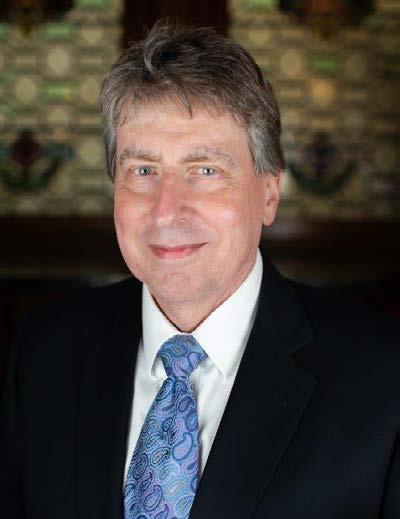
By: Keith Kanel, MD – President of Allegheny County Medical Society
Since 1911, the ACMS Bulletin has played a critical role in keeping the physicians of Allegheny County connected and informed. It is one of the most iconic symbols of our organization, and the magazine with its familiar BULLETIN nameplate could be found in medical libraries, executive suites of health systems and hospitals, our office waiting rooms, and on our coffee tables at home. Now published monthly, it is an ever-present reminder that our physician community is vibrant and always on the move.
In January 2026, the ACMS Bulletin will transition to a quarterly printed publication. This is part of our larger plan to modernize our communication strategy and build on our investments in digital formats, yet ensure that an important part of our legacy continues.
The Bulletin has always changed with the times. Initially conceived as a weekly newsletter through the 1920s and 1930s, it was the way physicians built their practices, offering advertisements (Trusses! Sanatoriums! Office space! Funeral homes!), reporting diphtheria and typhus rates before there was an Allegheny County Health Department, and serving as a de facto scientific journal. In the 1960s
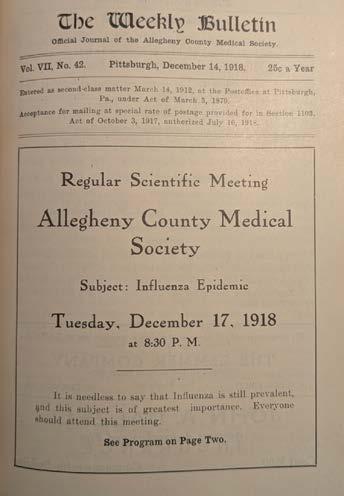
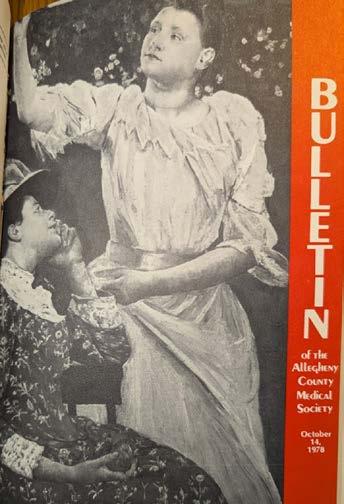
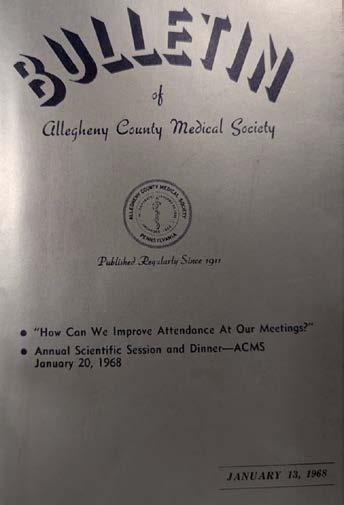
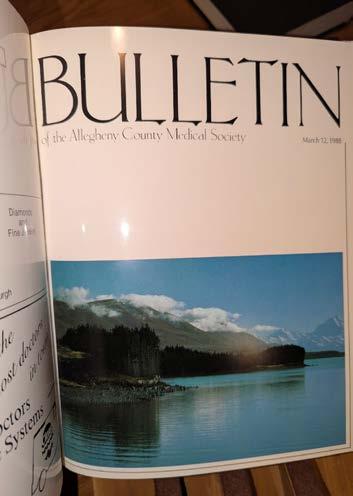
it became a biweekly magazine in which ACMS conducted the business of membership – announcements, an events calendar, meeting minutes, our elections of officers, and obituaries, with an even larger barrage of advertisements. The familiar glossy iteration we know today featuring member photography on the cover appeared in the 1980s, after which publication became monthly.
Over the last twenty years, email, social media, web portals, and a digital advertising revolution has supplanted many traditional Bulletin functions. And as it has for the last century, the Bulletin must again be reinvented to match the times.
Beginning in January, “The Bulletin” will be relaunched in a hybrid format that combines our rich print history with ACMS’s newly launched online products, the Snapshots newsletter and our Insights blog. The magazine will still be mailed quarterly to membership, but it may look different. We want to unleash our (and your) creativity in highlighting ACMS’s accomplishments and exciting new directions into political advocacy, physician wellness, and community health.
We need your help. We’re looking
for energetic members who’d like to shape this new vision. In this issue you will find descriptions for both a new ACMS Bulletin Medical Editor and a 10-member Editorial Board, all of whom we hope to appoint this fall. The Medical Editor will work closely with ACMS Executive Director Sara Hussy, who has long spearhead publication as Managing Editor, along with recently elevated Editor Emeritus Reshma Paranjpe MD. If you are interested in either the Medical Editor or Editorial Board positions, please reach out to Ms. Hussey at shussey@acms.org.
The ACMS Bulletin is one of our organization’s treasures and a durable record of our good works. Please join us in making our second century as amazing as our first.

Dr. Reshma Paranjpe Appointed Editor Emeritus of the ACMS Bulletin
After serving ten continuous years as Medical Editor of the ACMS Bulletin, we are pleased to announce the appointment of Dr. Reshma Paranjpe as the first Editor Emeritus of the ACMS Bulletin, effective January 2026. Dr. Paranjpe has chaired the Editorial Boad, written wonderful monthly columns for the Bulletin, and mentored many physician colleagues in journalism and creative writing.
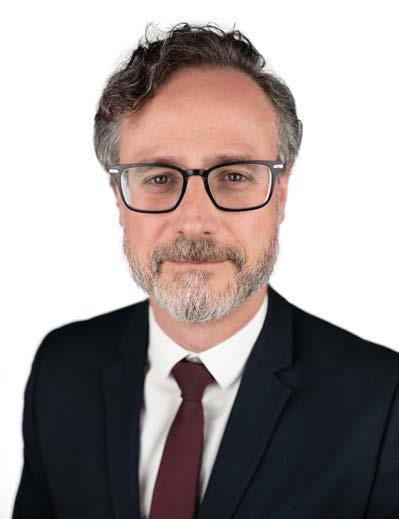
By: Rick Hoffmaster, MD – Chair of the ACMS Advocacy
Batten down the hatches. ACMS, alongside many other physician organizations, has been navigating unprecedentedly choppy political and social waters as of late. As we recover from a once-in-a-generation pandemic, medical disinformation and distrust of science abounds. External pressures threaten independent, physician-led care. The price of medical education is quickly supplanted by the swelling costs of practicing medicine. At a time when society is increasingly divided, ACMS continues striving to unite all Allegheny County physicians.
Renewing ACMS's Purpose
While physician organizations have historically maintained political neutrality, it's becoming increasingly important in recent years to address the massive impact that various governmental actions (and inaction) are having on the practice of medicine. This is particularly true in regard to public health and threats to accessing independent, physician-led care, as evidenced by recent federal and state actions challenging vaccination programs, gender-affirming care, medical research, and Medicare and Medicaid funding cuts, to name a few. As per our Bylaws, the Purpose of the Allegheny Medical Society outlines our responsibility "to enlighten and direct public opinion in regard to the problems of public health."(1) This is a time of both significant challenges, and of great opportunities for organized medicine.
Advocacy Task Force Charter
To pilot ACMS and its membership through these straits, the ACMS Executive Committee, led by President Keith Kanel, MD, established the
Advocacy Task Force (ATF) in April 2025. This ad hoc committee was tasked with helping keep ACMS leadership, and members at large, abreast of important legislative and regulatory issues impacting Allegheny County physicians, and to enhance Society participation in the political process. To accomplish this goal, as inaugural Chair of the ATF, I assembled a working group of physician and student members to facilitate bidirectional communication between members and leaders in medical policy, with the following responsibilities:
• To serve as a regular point of contact between ACMS and the PAMED Office of Government Relations,
• Track and provide timely education to ACMS leadership and membership regarding relevant, emerging trends in medical policymaking, and
• Propose action and identify advocacy opportunities for ACMS leadership as the voice of its physician and student members.
Our hope is that, together, ACMS and policymakers can form a united front that empowers physicians to help create the changes needed to continue building a healthier community.
The ATF has been busy over the past few turbulent months. As a pilot program, much of the Task Force's initial efforts have centered on opening lines of communication with a network of legislators, local health care leaders, and our colleagues at PAMED and the AMA. While ACMS cannot itself engage in lobbying or support specific political
Force
candidates, we will collaborate with PAMPAC, the Pennsylvania Medical Political Action Committee, who serves as PAMED's lobbying body. PAMED maintains an up-to-date compendium of active medical policy concerns on their website (2), and I encourage all ACMS members to sign up there for email alerts to stay abreast of urgent advocacy issues and calls to action. ACMS is working to highlight emergency advocacy opportunities with a revised and expanded ACMS Bulletin, that includes a modernized digital platform and ACMS Insight (3) blogs to more effectively communicate with membership. These updates have focused thus far on impacts of the OBBBA (One Big Beautiful Bill Act) on physician reimbursements, restructuring of the CDC, and major changes in federal vaccine policies.
ACMS leadership has developed an open dialogue with state and federal legislators regarding these and other issues, most recently at the August 14th ACMS Legislative Update. Members of the ACMS Board, Executive Committee and Delegation to the PAMED House of Delegates enjoyed the opportunity to engage in impassioned bipartisan discussion with US Congressman Chris Deluzio (D), and PA Representatives Tim O’Neal (R), and Rep. Arvind Venkat (D). ACMS leaders expressed multiple concerns, requesting attention to public health threats, private equity regulation and hospital consolidation, and care access issues. With that said, the participants noted that things have been somewhat quiet recently with regards to legislation pertaining to
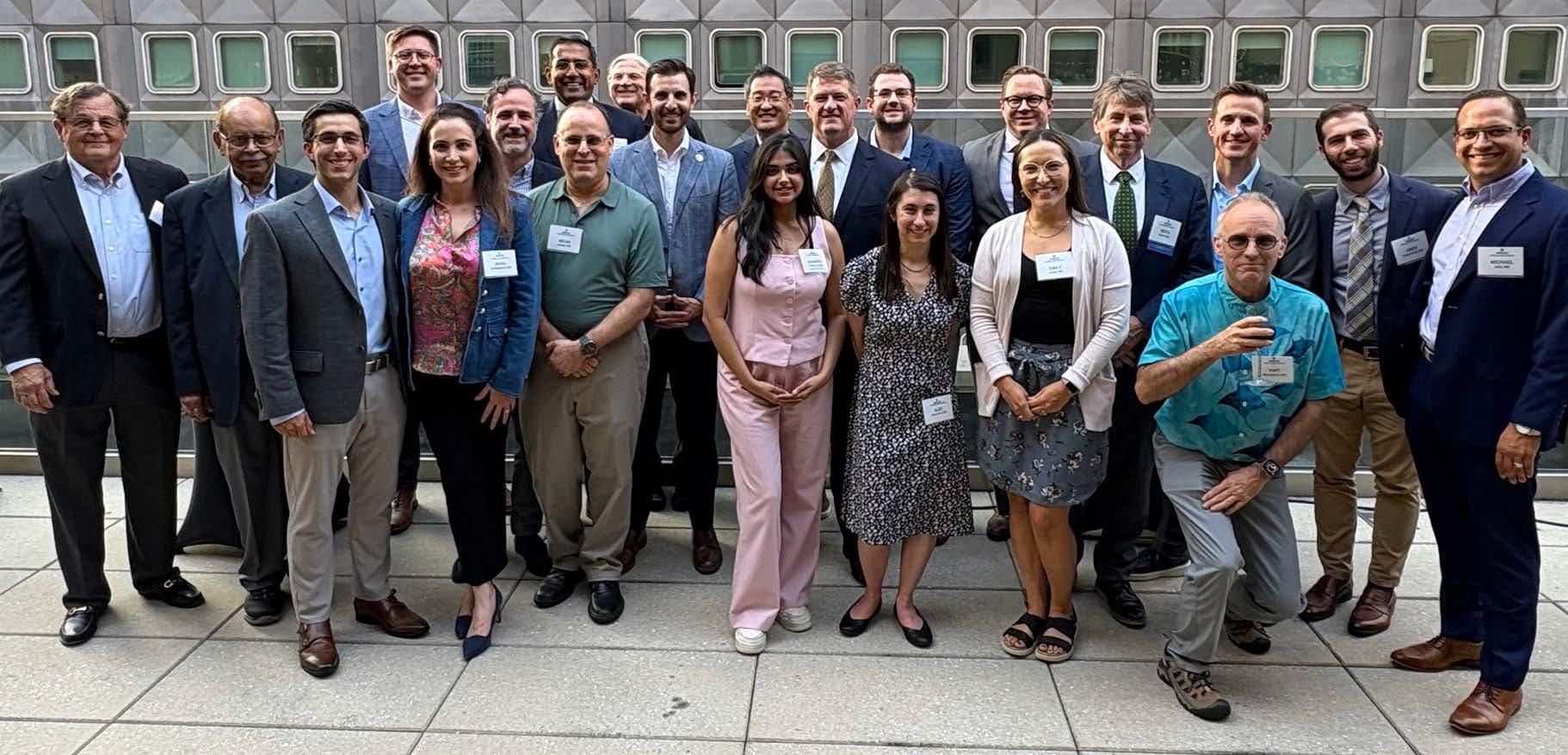
historical PAMED advocacy priorities such as scope of practice, restrictive covenants, and ED overcrowding. Both local representatives emphasized that access to care remains a top priority. Generally, the legislators in attendance demonstrated that they were engaged and eager to hear from our membership and specifically encouraged physicians to be more engaged in the political process by directly contacting their legislators by phone and supporting candidates that speak to their concerns.
Local dialogue has involved Allegheny County Health Department director Dr. Iulia Vann as well as community programs tasked with supporting public health. We continue to face threats to vaccination programs with general vaccine misinformation, reduced funding for local health departments and vaccine programs, and narrowing FDA approval for COVID vaccines. To bolster vaccine education and access in our community, ACMS has developed a strategic new partnership with the Allegheny County Immunization Coalition (ACIC). (4) This collaboration will serve to strengthen outreach and
vaccine programming in Allegheny County. Partnering with ACIC has also permitted ACMS to offer a reduced registration fee for members attending their 20th Annual Conference on November 5th, 2025. (5)
It's an exciting time to be an ACMS member, and there are more opportunities than ever to actively promote a healthier community for both patients and physicians. The ATF has big plans for the next few months. Firstly, we will be releasing regular calls to action via email and blog posts, so keep an eye out. Additionally, we will publish a regular Bulletin article highlighting recent ACMS advocacy efforts. In the future, we hope to arrange live forums for members to discuss issues important to their patients and practices. Furthermore, ACMS plans to meet with local leaders from health care systems and large physician practices to align our priorities with theirs, and to strengthen each organization as we respond to these evolving challenges. Finally, we plan to offer future election guides to educate membership on political
candidates and to encourage using our votes to shape policy. Most importantly, the Advocacy Task Force is eager to hear from members looking to be more involved in ACMS's advocacy efforts. You can submit any comments to our Executive Director, Sara Hussey, at shussey@acms.org, and she will send them our way.
Resources
https://www.acms.org/wp-content/ uploads/2024/08/ACMS-Bylaws-2024. pdf
Healthcare Advocacy Legislative Priorities | PAMED
https://www.acms.org/category/ acms-insights/ https://www.acms.org/a-strongerfront-for-public-health-acms-and-acicjoin-forces-to-promote-immunizationawareness/ https://www.immunizeallegheny. org/acic-conference-2025/ - use code ACMS30 to get 30% off the Conference Registration Fee.

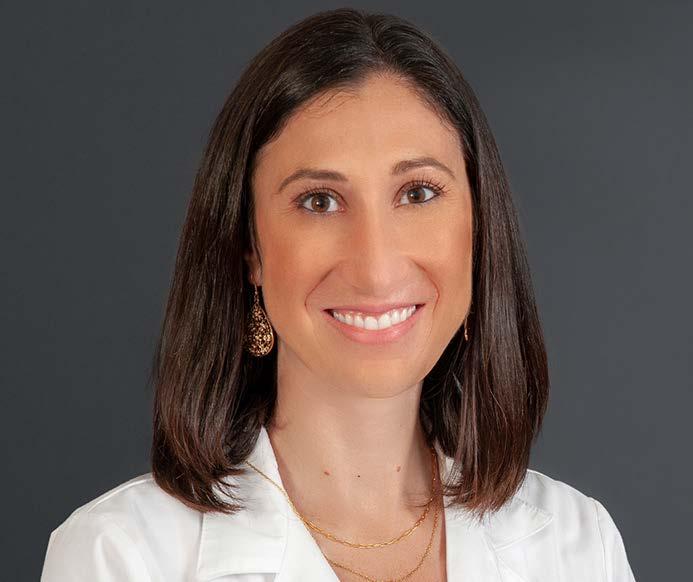
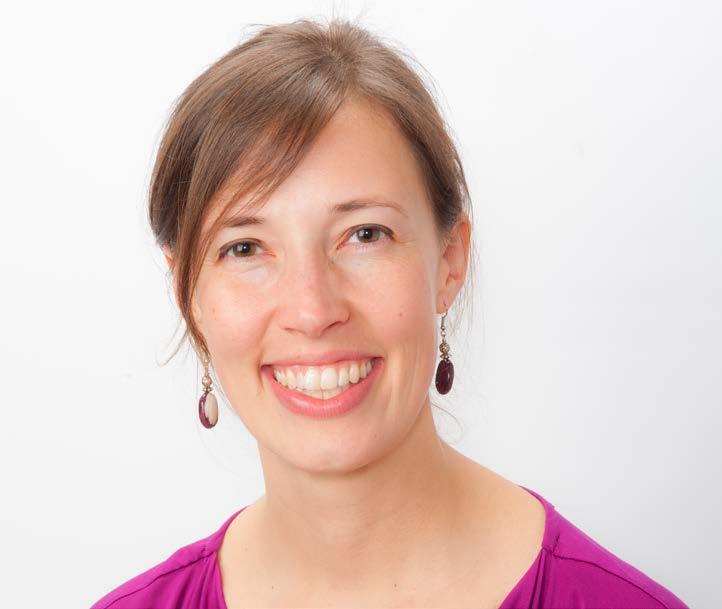
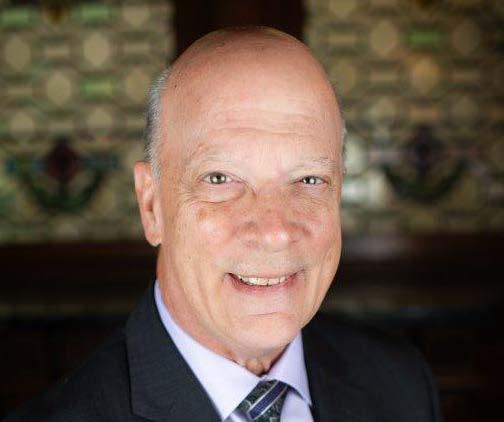
Nathaniel Bedford Primary Care Award
Dr. Maria Gioia is a Family Medicine physician, educator, and Medical Director of AHN Forbes Family Medicine. She serves as Associate Program Director of the Forbes Family Medicine Residency and Associate Clinical Professor at the Lake Erie College of Osteopathic Medicine. A champion for women, children, the LGBTQ+ community, and patients with substance use disorders, she has led medical missions abroad, community health initiatives, and research on lifestyle medicine. She also serves on the Board of the Pennsylvania Academy of Family Physicians and leads engagement efforts for AHN’s Women Physician’s Employee Resource Group. A proud Pittsburgh native, she is wife to Larry and mom to Luca and Dominic.
Richard E. Deitrick Humanity in Medicine
Dr. Anita Leon-Jhong is the medical director of the UPMC Second Avenue Commons Health Center, which provides compassionate, team-based care for people experiencing homelessness. A Pittsburgh native, she trained at Notre Dame, the University of Pennsylvania, and UPMC, with a focus on global health and underserved populations. She helped open the Commons Health Center in 2022, where patients receive not only medical care but also essentials like medications, eyeglasses, and clothing.
Ralph C. Wilde Leadership Award
Dr. Raymond Pontzer, a graduate of Penn State and the Medical College of Pennsylvania, recently retired after 41 years of clinical practice in infectious diseases. A founding partner of Romano, Pontzer & Associates and Clinical Associate Professor at the University of Pittsburgh, he has been a leader in infection prevention and outpatient intravenous antibiotic therapy, even testifying before Congress to secure Medicare funding for home treatments. He directed UPMC’s infection prevention team, guiding system-wide improvements and contributing expertise during the COVID-19 pandemic. Widely recognized with numerous teaching and leadership awards, Dr. Pontzer has also given back through community service as a Sunday school teacher, Boy Scout leader, and Little League coach.

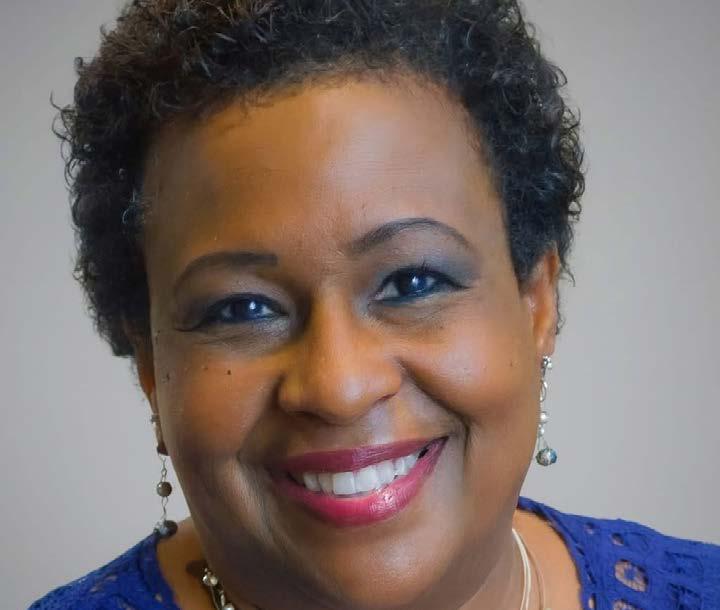
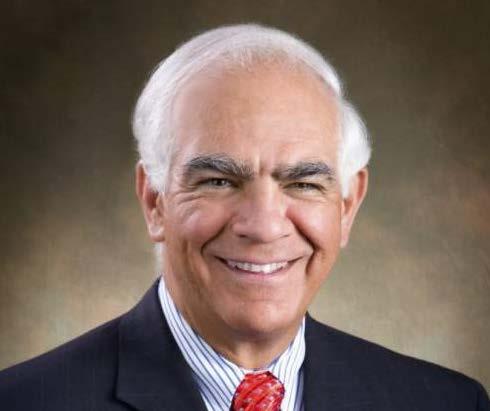
Founded in 1893, The Children’s Home of Pittsburgh is an independent nonprofit dedicated to the health and well-being of infants and children through programs like Adoption & Permanency, Child’s Way® daycare, a Pediatric Specialty Hospital, therapy, and counseling. Families never receive a medical bill, with over $4 million in free care provided each year. The 30-bed Pediatric Specialty Hospital serves children from birth to 21, offering family-centered care, on-site training, and free accommodations to help families confidently transition their children home.
Janice has over 30 years of experience in human services, focusing on HIV/AIDS and intimate partner violence. Since 2007, she has served as Medical Advocacy Coordinator at the Women’s Center & Shelter of Greater Pittsburgh, providing crisis intervention for survivors and supporting healthcare professionals with best practices. She previously worked as Minority Community Organizer at the University of Pittsburgh, leading HIV/AIDS prevention efforts across Pennsylvania. A U.S. Navy veteran of Operation Desert Storm, Janice lives in New Brighton, PA, and is a proud mother and grandmother.
ACMS Spirit of Service Award
Dr. Lawrence John began his career as a Family Practice resident at St. Margaret Memorial Hospital in 1977, later opening a solo practice that has since grown to 10 physicians and a physician assistant. He served as school physician for the Fox Chapel Area School District for 30 years, earning a place in their Hall of Fame, and has held leadership roles with UPMC, St. Margaret, and as President of both the Allegheny County and Pennsylvania Medical Societies. A longtime advocate for physician wellness, Dr. John has worked to address burnout and build healthier environments in medicine. Raised in Uniontown, PA, he earned degrees from Notre Dame and Case Western Reserve, and together with his wife, Martha, a retired pediatrician, raised four children and now enjoys a growing family of grandchildren.
By: Lisa George, MPH, CHES – Program Manager, Jewish Healthcare Foundation
Access to palliative care leads to improved symptom management and quality of life for patients experiencing serious illness. Yet too often, palliative care interventions are offered too late during illness—or not at all—reducing goal-concordant care and increasing costs. This summer, CQEL (founded as the Coalition for Quality at the End of Life) offered members a deep dive into Pennsylvania’s score on the Center to Advance Palliative Care’s (CAPC’s) Serious Illness Scorecard, which evaluates states' capacity to deliver high-quality palliative care to people with serious illness.
At the July CQEL meeting, CAPC Associate Director of Policy and Health Care Transformation Stacie Sinclair, MPP, discussed the 2024 Scorecard. Ranking each state’s performance across five domains on a five-point scale, CAPC awarded Pennsylvania 3.5 out of 5 stars, reflecting substantial infrastructure to advance palliative care initiatives.
The 2024 Scorecard expands the focus beyond hospital-based programs. "We decided it was time to tell a new story about palliative care capacity," explained Sinclair, noting the field’s expansion beyond hospital walls into communities, measuring 10 indicators across five domains, providing a more nuanced view of each state's serious illness care infrastructure.
Pennsylvania's Performance Across Five Domains
Specialty Palliative Care Availability: Pennsylvania demonstrates strong hospital-based access, with 93.8% of hospitals with 50 or more beds reporting palliative care programs/
units. The state also has 6.58 certified hospice and palliative care professionals per 100,000 population, based on data from the American Board of Medical Specialties and the Hospice and Palliative Credentialing Center.
Payment Mechanisms: While Pennsylvania lacks legislation/ regulations expanding payment for specialty palliative care, its largest payer (UPMC Health Plan) offers unique services for enrollees with serious illness, boosting the state’s score.
Advocacy and Support Structure: The state lacks a legislatively established palliative care advisory council, but advocacy organizations such as the Pennsylvania Hospice and Palliative Care Network and Pediatric Palliative Care Coalition provide crucial coordination.
Building Skills Beyond Specialty Care: Pennsylvania excelled in this domain, with several continuing education requirements specifically referencing palliative care and a high proportion of clinicians completing at least one CAPC course.
External Environment: The state ranked 21st in AARP's long-term services and supports scorecard, which was factored into CAPC’s ratings, and also lacks a Medicaid waiver for expanded pediatric palliative care.
National Context and Regional Comparison: Pennsylvania is among 11 states receiving a 3.5-star rating. The Middle Atlantic region (Pennsylvania, New Jersey, and New York) averages 4 stars, providing regional performance context.
The most significant opportunity for
improving Pennsylvania's score lies in developing payment mechanisms for specialty palliative care.
For states pursuing legislative solutions, Sinclair cited California's experience with SB 1004, which required Medi-Cal managed care plans to offer palliative care. Successful policy implementation requires detailed attention to eligibility criteria, provider training, educational materials, and oversight mechanisms.
High-scoring states demonstrated strong coordination across all stakeholders, including palliative care champions, state policymakers, payers, community organizations, and critically, patients and families.
While PA's 3.5-star rating reflects substantial infrastructure development, Sinclair emphasized that the Scorecard measures capacity, not outcomes. CQEL members reflected that the ability to deliver quality palliative care often feels like a much lower score.
For Pennsylvania, the path forward involves leveraging existing strengths while addressing specific gaps in payment infrastructure and community-based care documentation, with the ultimate goal of ensuring that all Pennsylvanians living with serious illness have access to high-quality, coordinated care that honors their values and improves their quality of life—a mission that extends far beyond any scorecard rating.
Read Pennsylvania’s report at https://scorecard.capc.org/state/ pennsylvania/
Learn more about CQEL at https://jhf. org/projects/coalition-for-quality-atthe-end-of-life
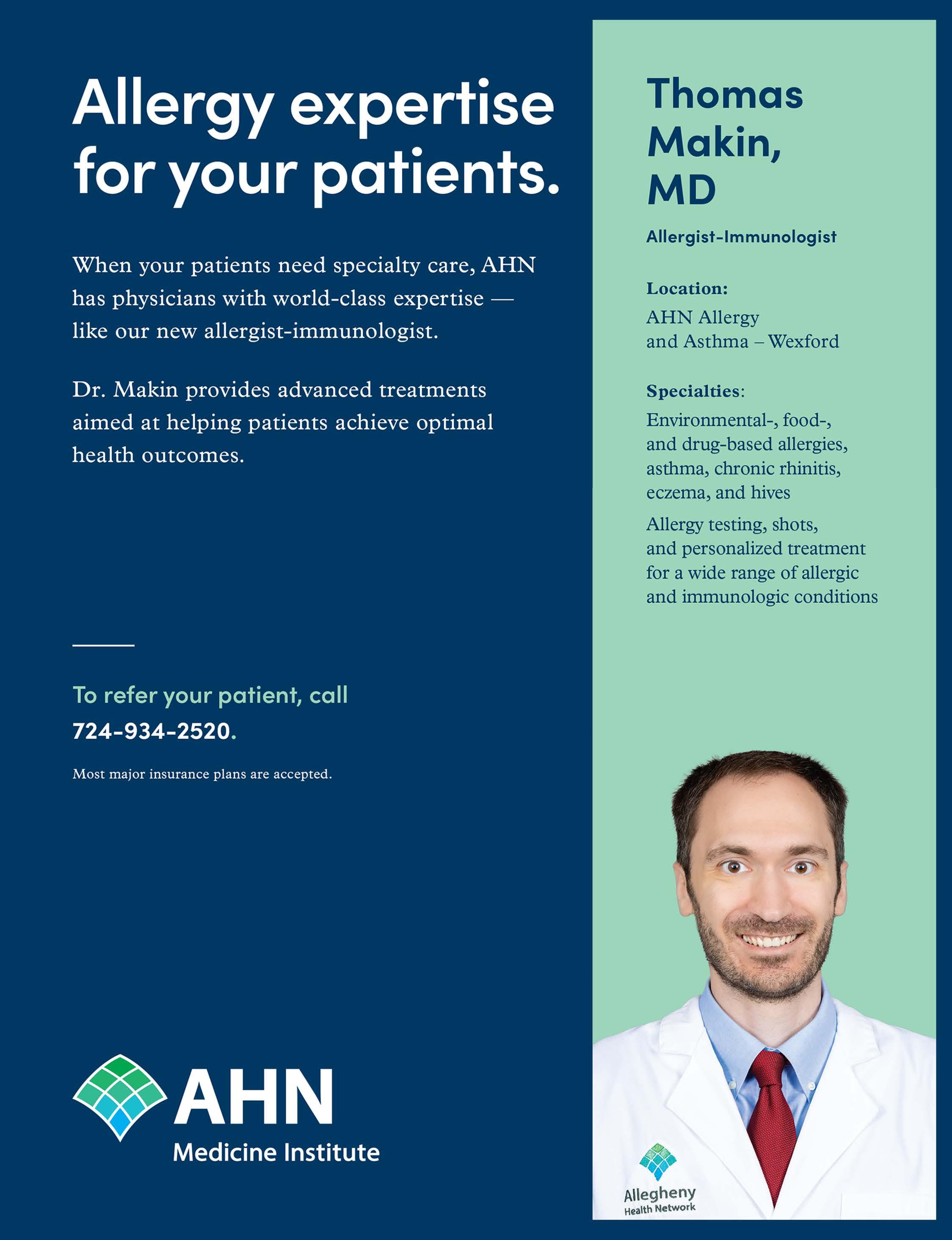

By: Anthony Kovatch, MD
Some say the world will end in fire, Some say in ice.
From what I’ve tasted of desire I hold with those who favor fire. -- from “Fire and Ice” by America’s poet laureate Robert Frost (1874-1963)
Although it was published over 100 years ago, Frost’s terse metaphorical poem may be more impactful today as civilization weighs the probability of an apocalypse wrought by an event symbolized by “fire,” like a nuclear holocaust, versus one symbolized by “ice,” like a barren earth consequential to unbridled climate change or perhaps, both occurring simultaneously. During this past year, I was blessed to vicariously share in a small way both of these disparate experiences with my fellow members of the ACMS.
The “FIRE” was represented by the anticipated fun-and peace-filled Saturday evening at the Pirates baseball game at PNC Park despite the sweltering ambience of the Northside in late July. This followed a supper of hardy delicacies and refreshing drinks at the ACMS headquarters interacting with the devoted staff and my colleagues both old and new and their excited families!
Despite the insufferable heat and humidity wrought by the fire, we were inspired by a 2-0 shutout victory over our hapless West Coast rivals, the Arizona Diamondbacks, thrusting the Bucs into a 5-game winning streak. However, the crème de la crème of the outing had to be the spectacular drome show featuring the characters
of “Peanuts” the icing on the cake. We were so pumped up and dizzy with success that a few of us allowed ACMS Director of Finance Dr. William Coppula to sponsor the Pittsburgh version of a New York Central Park “horse and buggy” ride back to the Babb Building to obviate the potential risk of excessive sweating requiring an additional round of refreshing drinks.

My little horse must think it queer To stop without a farmhouse near Between the woods and frozen lake
The darkest evening of the year. -- from “Stopping by Woods on a Snowy Evening” -- again by Robert Frost
What represented the “ICE” was also supposed to be a fun-filled and peaceful weeknight educational and social event, interrupting the loneliness of a bitter cold spell in the dead of winter months prior to the Pirates game. This was to be shared with the same colleagues at the Cadence Cellars Speakeasy in the Strip District in Downtown Pittsburgh; I excitedly welcomed quiet social interaction with my fellow physicians,
especially those who were planning their own retirements.
It may not have been the darkest evening of the year, but it was certainly the coldest. I do recall feeling a pang of gratitude that the temperature outside had skyrocketed from -2 degrees when I had left my home at sunrise in the North Hills up to + 2 degrees at the end of the workday. However, in retrospect, after exiting the event as it was breaking up at a pitch-dark 8 PM, it should have been no great surprise that the little horse’s engine was dead. After a few volleys of “cursing out the powersthat-be,” I regained my composure, promptly returned to the Speakeasy, and called AAA on my cell phone (which I noticed to be at 2% charge only)! I was comforted to find out from the Speakeasy staff that, although the dining rooms were now in the dark, the adjacent bar room the “crown jewel” of the establishment would not be closing until 10 PM.
As I sheepishly hung out on a bar stool feeling quite out of place in my suit and tie waiting with a guise of patience for the heads-up call from AAA that rescue was on the way, my departing medical colleagues offered empathy and reassurance that the projected 45 minute waiting time would pass quickly; unfortunately, wholehearted commitments to recharging my dead battery were universally confounded by the absence of the requisite jumper cables.
Although there were even some offers to drive me home, I knew that the revival of my “little horse” that evening would be a prerequisite for sleep that night!
Even more critical at that time was the compassion of the young waiters serving drinks at the bar, who sustained not only my wakefulness with a cup of hot, strong coffee, but, more importantly, the crucial power of my dying cell phone by allowing me to hook it up to a charger inside the warm bar. I could hear the crackling of the fireplace behind me in the dim, but comforting, light of the bar room, especially when the flames occasionally emanated equally comforting wafts of heat. A young lady bartender and a gentlemanly waiter of about the same age serving drinks to the clientele stragglers at the bar treated me like a VIP. The two alternated in offering me free snacks and alcoholic beverages, as well as by babysitting my recharging cell phone when I had to repeatedly visit the restroom. Both even volunteered to call Uber to bring me home if AAA did not arrive before the bar closed at 10 PM.
It was after the latter kind gesture that the unwelcome ghost of America’s foremost author of prose Ernest Hemmingway (1899-1961) entered the scene by way of my recollection of the two main characters in his existential, but not-overly-well-known short story “A Clean, Well-lighted Place.” I replayed in my anxious mind the conversation between a world-weary, empathetic older waiter and his youthful, energetic, but cynical, younger colleague:
“We are of two different kinds,” the older waiter said. He was now dressed to go home. “It is not only a question of youth and confidence although those things are very beautiful. Each night I am reluctant to close up because there may be some one who needs the café.”
“Hombre, there are bodegas open all night long!” countered the younger waiter.
“You do not understand. This is a clean and pleasant cafe. It is welllighted. The light is very good and also, now, there are shadows of the leaves.”
Although I knew well that the bitter cold would challenge the resources of the AAA that “coldest evening of the year,” a series of broken promises
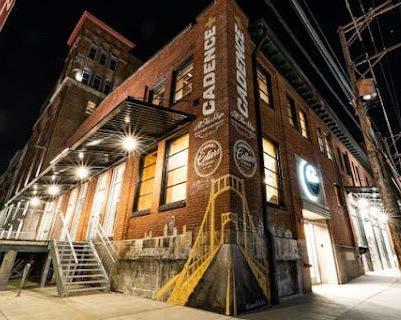
regarding the time of the rescue caused me to call for reboots about every half hour. As my patience and confidence dwindled, the hemorrhaging of negative self-talk, self-loathing, and recrimination poured out of my wounded psyche:
“How will you be able to sleep tonight when you get home so late if you get home at all? Will my wife be angry that she had to be alone all evening and then wait up for me? Am I not a useless human being? Why did I have to close-up my career and retire from my practice at the age of only 71 and disconnect myself from all my dear patients?
What will be my legacy? Why do I worry even a little bit about my legacy? Anyway, nobody reads what you write anymore. Hemingway was right when he confided to F Scott Fitsgerald: ‘I write one page of masterpiece to ninety pages of shit!’ But why did he commit suicide by blowing his brains out at the age of only 61? Was he also right about it all being ‘nada’?”
Like a “same old song,” I replayed Heminway’s short story over and over again in my head, especially the soliloquy of the older empathetic waiter, with whom I identified:
“Nor can you stand before a bar with dignity although that is all that is provided for these hours. What did he fear? It was not a fear or dread, It was a nothing that he knew too well. It was all a nothing and a man was a nothing too. It was only that and light was all it needed and a certain cleanness and order. Some lived in it and never felt it
but he knew it all was nada…. Our nada who art in nada, nada be thy name….” I was awakened from my dogmatic self-pity and my irrational non sequiturs by the voice of the very kindly female waitress alerting me that my recharged cell phone had rung. AAA indeed promised that a rescue truck would be arriving in 10 minutes. The mental hemorrhaging was over, but I would have to leave the warmth and kindness of the café and return to my little horse to flag down the truck in what was now sub-zero cold. I was shocked--it was now 10:30! The remaining servers behind the bar promised to keep the joint open until I was safely on my way home. They asked if I needed a drink for the road--they had kept the coffee warm for me.
The AAA driver easily recharged my battery starting the Honda, scraped accumulated calcifications (that had contributed to the engine’s death) off the cable attachments, and graciously thanked me for a small tip despite his look of exhaustion.
When I arrived home just before midnight, my wife--who knew of my conundrum—was still awake waiting to kiss me good night. Several of my medical colleagues would inquire the next day whether I had gotten home safely, including the society’s medical director. Instead of stultifying anxiety, my mind was laden with the promise of reciprocating the kindness endowed upon me in my time of crisis by my ACMS colleagues and by common strangers. Hemingway's existential dread was replaced by the mission statement of the ACMS, as expressed by Chief Editor Dr Deval Paranjpe:
“Self-care as a physician can also look like being part of the ACMS--an organization committed to your wellbeing and success both PERSONALLY and PROFESSIONALLY.”
I would immediately fall asleep as soon as my weary head hit the pillow, remembering that I still had some “promises to keep.”
By: Nadine Popovich, Melanie Mayer, and Haley Thon
Allegheny County Immunization Coalition (ACIC) — 2025-2026 ChairJenny Bender, MPH, BSN, RN, CIC: ACIC Update – September 2025
The Allegheny County Immunization Coalition is opening its doors wide this season, and registration is now open for two cornerstone events.
On September 18, 9–11 AM (Hybrid), Beth Hoffman, PhD, MPH, of the University of Pittsburgh School of Public Health, will present From TV to TikTok: Leveraging Media for Vaccine Communication. She’ll share how physicians and public health professionals can cut through the noise and shape effective vaccine messaging in today’s rapidly changing media landscape.
Then on November 5, ACIC will celebrate its 20th Annual Conference at the Regional Learning Alliance. This year’s theme, Uniting for Immunity, looks at how vaccination strengthens not only public health, but also workforce resilience and community trust. Visit: https:// www.immunizeallegheny.org/acicconference-2025/ to register. ACMS Members receive 30% off registration by using code ACMS30 at checkout.
Both events are open to anyone with an interest in public health. ACIC is a multidisciplinary coalition, and membership is free. Joining is easy— visit www.immunizeallegheny.org to register, explore upcoming programs, and become part of the coalition.
American College of Surgeons
Southwestern Pennsylvania Chapter (ACS-SWPA) — 2025 President –Richard Fortunato, DO, FACS: Mark your calendars for Thursday, October 16th at
Eddie Merlot's for our annual Resident Surgical Jeopardy Competition. Teams from Allegheny Health Network, Conemaugh, UPMC Mercy, and UPMC Presbyterian and maybe even a faculty team will go head-to-head in a lively test of surgical knowledge. This evening is more than a competition as it’s a chance to connect with colleagues, enjoy dinner, and celebrate the next generation of surgeons in a fun, engaging setting. The registration fee will be $25.00 for Members of the ACSSWPA, $50.00 for Non-Members of the ACS-SWPA, and free for students and residents. ACS-SWPA members should watch their inboxes for registration!
For any questions or membership inquiries, please contact Haley Thon, Chapter Administrator, at 412-321-5030 x105 or hthon@acms.org!
Pennsylvania Geriatric Society Western Division (PAGS-WD) — 2025 President - Heather Sakely, PharmD, BCPS, BCGP: Fall Program 2025
Join us for this year’s Fall Program and Business Meeting on Wednesday, October 29, 2025, from 5:30 to 8:30 PM at the PNC Champions Club at Acrisure Stadium. We’ll begin with our final business meeting of the year, followed by an insightful panel discussion: “From Impact to Action: Understanding Shifts in Medicare and Medicaid for Pennsylvanians.” This discussion will explore the latest healthcare policy changes and their impact on Pennsylvania residents. Click the link to register: https://pagswd.org/ event-6315015.
2025 Geriatrics Teacher of the Year Award – Nominations Needed
The Society is proud to announce that nominations are now being accepted for the 2025 Geriatrics Teacher of the Year Award. This prestigious annual honor recognizes two outstanding educators, one physician and one healthcare professional, who have shown exceptional commitment to advancing geriatrics education. Award recipients are individuals who have made a lasting impact on the training and development of future geriatric professionals and have significantly contributed to the growth of geriatrics education across the healthcare continuum. Full details, including eligibility requirements, selection criteria, and the nomination form, are available on the Society’s website at Pennsylvania Geriatrics Society - WD - Teacher of the Year.
For any questions or to join the society, please contact Haley Thon, Chapter Administrator, at 412-321-5030 x105 or hthon@acms.org .
The Pittsburgh Ophthalmology Society (POS) — 2025 President - Laurie A. Roba, MD:
Pittsburgh Ophthalmology Society: 2025-2026 Monthly Meeting Series Begins | September 4 Meeting Recap
The Pittsburgh Ophthalmology Society (POS) officially opened its 2025–2026 monthly meeting series on September 4, 2025, at the PNC Champions Club at Acrisure Stadium. The Society was honored to welcome Asim Piracha, MD, Associate Professor at the University of Kentucky Department of Ophthalmology and the University of Louisville Department of Ophthalmology and Visual Sciences, and a board-certified ophthalmologist at Commonwealth Eye Surgery in
Lexington, Kentucky. Special thanks to Joel Brown, MD, for extending the invitation, and to our meeting sponsors—Dompé, Ocular Therapeutix, and Rayner—for their generous support.
Dr. Piracha delivered two engaging lectures that were extremely well received, as reflected in the interesting Q&A discussions that followed. In addition, Eitan Shemuelian, MD, a second-year resident at the University of Pittsburgh Department of Ophthalmology, presented a case for review and commentary by Dr. Piracha.
Dr. Piracha was recently appointed by the Governor to the Kentucky Board of Licensure. A recognized leader in the field, he remains dedicated to advancing ophthalmology through his clinical work, research, and frequent contributions to conferences and peerreviewed publications.
During the business portion of the meeting, Ryan Williamson, MD, Chief Resident, introduced the 2025–2026 Resident and Fellow Faculty. Members were also encouraged to attend the PAO Advocacy Day, scheduled for October 6, 2025 in Harrisburg.
Looking ahead, the Society’s next meeting will be held on Thursday, October 9, 2025, featuring guest
speaker Jordan Deaner, MD (Uveitis and Vitreoretinal Surgery, Mid Atlantic Retina, Wills Eye Hospital; Assistant Professor of Ophthalmology, Sidney Kimmel Medical College at Thomas Jefferson University, Philadelphia, PA).
Dr. Deaner is widely published, having authored numerous book chapters and original articles on vitreoretinal and ocular inflammatory diseases. An active member of the American Academy of Ophthalmology and the American Society of Retina Specialists, he has presented extensively at national and international meetings, including the American Uveitis Society, the Retina Society, and others. Registration for the October meeting begins September 15th.
The Society proudly congratulates Lawrence Gipson, MD, on receiving the Lifetime Achievement Award from the Gateway Medical Society. Dr. Gipson, along with other distinguished honorees, will be celebrated on October 25 at the Black Excellence in White Coats Awards & Scholarship Gala, held at the Pittsburgh Marriott City Center from 6 p.m. to 9 p.m.
This honor reflects the mission, vision, and core values of the Gateway

Medical Society, which is entering its seventh decade of service to the Pittsburgh community. The Society remains steadfast in its commitment to clinical excellence, medical education, diversity, equity, inclusion, and advocacy on behalf of individuals, families, and communities of color, as well as those facing resource disparities.





of the Top Three Realtors in PGH - 2024










Who’s Who, Pittsburgh Business Times
Awardee - 2023 & 2024
Realtors Association of Metro Pittsburgh

